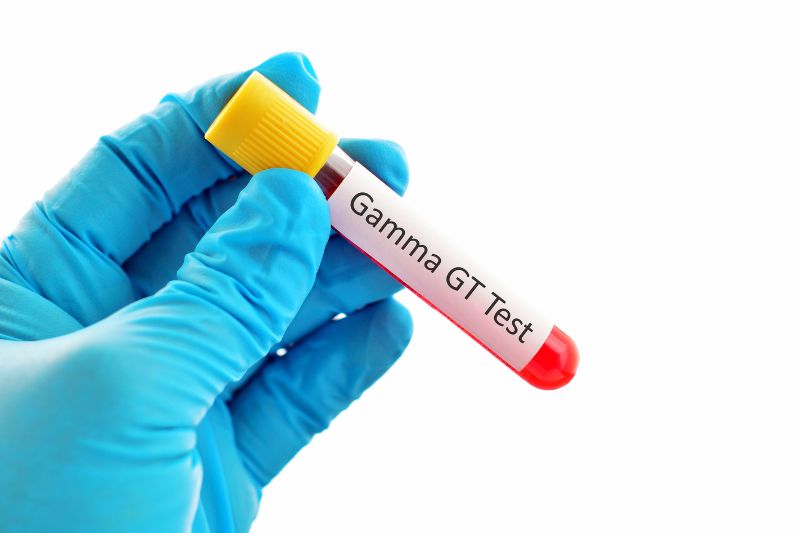Health conditions such as – and inflammatory bowel disease, liver disease, and stomach cancer can lead to similar symptoms. Some of these include – fatigue, stomach pain and lack of appetite. When you experience any of these symptoms, the healthcare provider may suggest a few tests including gamma blood test to know what is going on inside your body.
Gamma-glutamyl transferase, gamma-glutamyl transpeptidase or GGT is common enzyme in different organs of your body. Some of these include – liver, and tissues. It is usually found in the blood and other bodily fluids. The enzyme breaks down, changes, and moves proteins as well as other elements in the body.
Knowing normal range of GGT
The normal range of GGT in kids and adults is somewhere between 0 and 30 international units for each litre. When the GGT level is within your normal range, you may not have liver disease. Your liver has the highest levels of GGT while blood and other organs have minimal amounts of GGT. Having higher levels of GGT in the blood signify enzyme is coming out of liver cells and spreading into the blood. It also suggests damage to liver or bile duct.
Higher levels of GGT are vital signs of liver damage. A GGT blood test diagnoses major cause of the condition. The doctor may suggest conducting some follow-up tests to know why the GGT levels have been raised.
Uses of GGT Blood Test
Doctors use a GGT blood test to diagnose certain conditions such as:
- Diabetes
- Pancreatitis
- Liver tumour
- Bile duct obstruction
- Jaundice
- Chronic viral hepatitis
- Bone disease
- Diabetic liver disease
- Liver cirrhosis
- Liver damage with too much intake of alcohol
- Congestive heart failure
- Heart failure
You may have to conduct GGT test when you suffer from the signs of liver disease:
- Loss of appetite
- Fatigue
- Abdominal swelling or pain
- Jaundice or a condition that turn skin and eyes yellow
- Vomiting
- Nausea
- Weakness
How to prepare for GGT Test
Before conducting the GGT lab tests, you need to do fasting for at least 8 hours. You should not consume alcohol and certain medicines that may affect the test results. Among other medicines, you should avoid taking non-steroidal anti-inflammatory drugs such as –aspirin, naproxen and paracetamol. Do not take products which have alcohol in them such as medicine for cough and mouthwash. Do not smoke before performing GGT blood test.
Procedure of GGT test
A medical practitioner draws blood from your arm with a syringe and then delivers it for further diagnosis. You may get the test results within 24 hours after giving the blood sample. After this, you need to get in touch with the doctor to interpret the results. The normal test values range between 3.0 and 28.7 IU/L for women and between 3.3 and 35.0 IU/L in the case of men. Doctors prescribe a second test to confirm the test results and avoid misguided diagnoses.
How to interpret the results of a GGT Test
Having higher-than-normal GGT levels in your blood means a disease or a condition which causes damage to your liver. The higher the GGT level is, the greater the liver damage will be. The elevated GGT levels may denote liver conditions such as:
- Alcohol liver disease
- Liver scarring or cirrhosis
- Non-alcoholic fatty liver disease
- Liver inflammation or Hepatitis, specifically viral hepatitis or alcoholic hepatitis
- Blocked liver bile duct or cholestasis
- Liver ischemia or insufficient flow of blood to the liver resulting in liver tissue death
- Liver tumour
The higher levels of GGT might denote other conditions such as:
- Diabetes
- Pancreatitis or pancreatic cancer
- Alcohol use disorder
- Liver damage caused by some medicines
- Congestive heart failure
Other factors that may affect your GGT levels include:
- Smoking: Smoking may increase GGT levels in your blood.
- Drinking: Taking little amount of alcohol before 24 hours of your GGT blood test may increase the levels. People who drink alcohol usually have higher GGT levels than the ones who take less than two to three drinks daily or drink a lot during the special occasion.
- Medications: Certain medicines may increase GGT levels and some of these include – acetaminophen, carbamazepine, Phenobarbital and phenytoin.
Doctors will consider different aspects of your health and situations when detecting your GGT levels. Some of these include:
- How high the GGT levels are
- Your medical record
- Whether you experience any symptoms
- Results of other tests taken with GGT
The doctor may suggest some liver function tests along with GGT such as:
- Lactic dehydrogenase or LDH
- Aspartate aminotransferase or AST
- Alanine aminotransferase or ALT
It might be stressful to detect unusual gamma GT test result. But the increased levels of GGT do not imply major disease causing harm to your liver. Nearly 1 in 20 individuals will have abnormal GGT test result. The doctor will factor several things at the time of interpreting your test results and let you know whether you need to conduct further tests and know the cause of abnormal levels.

